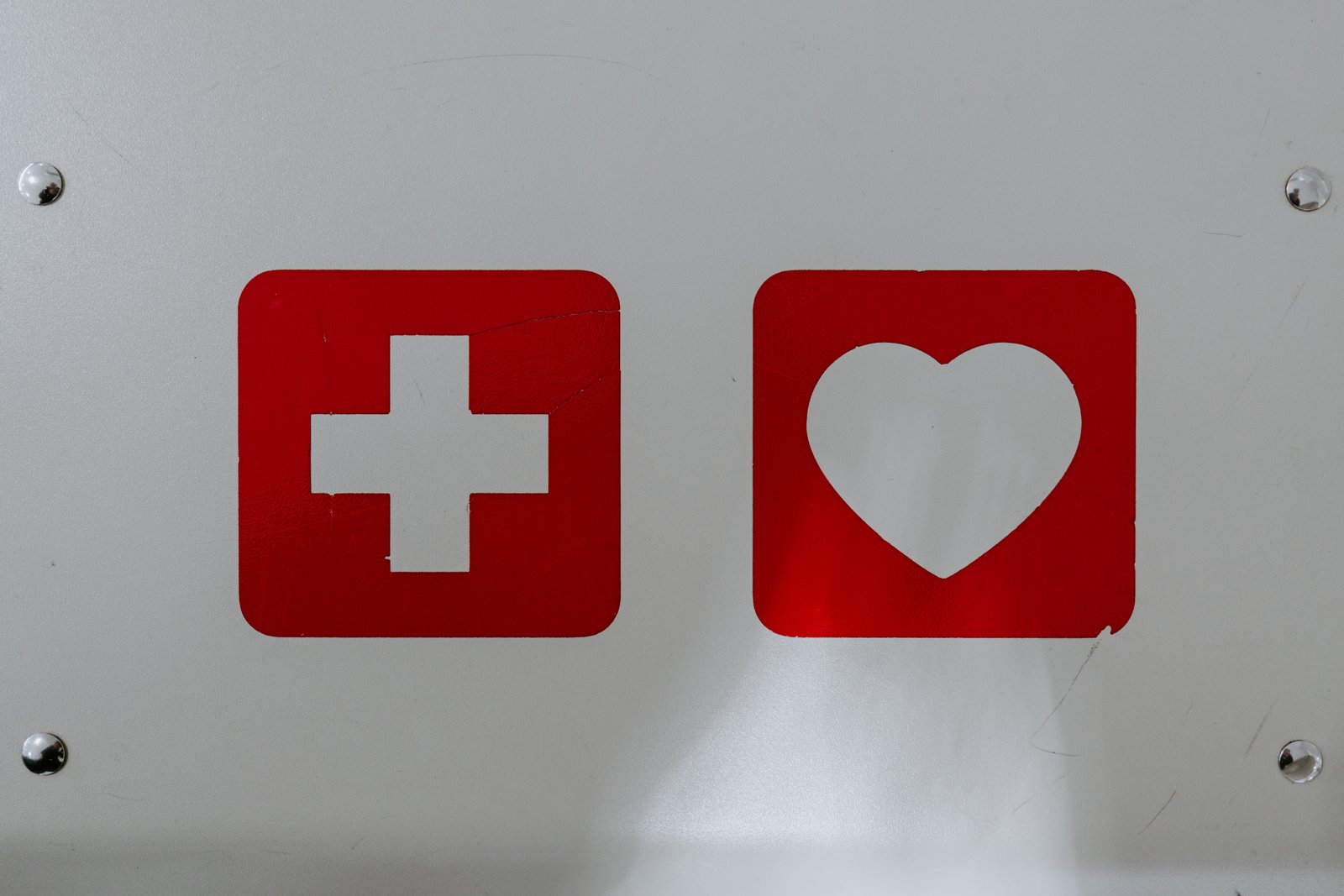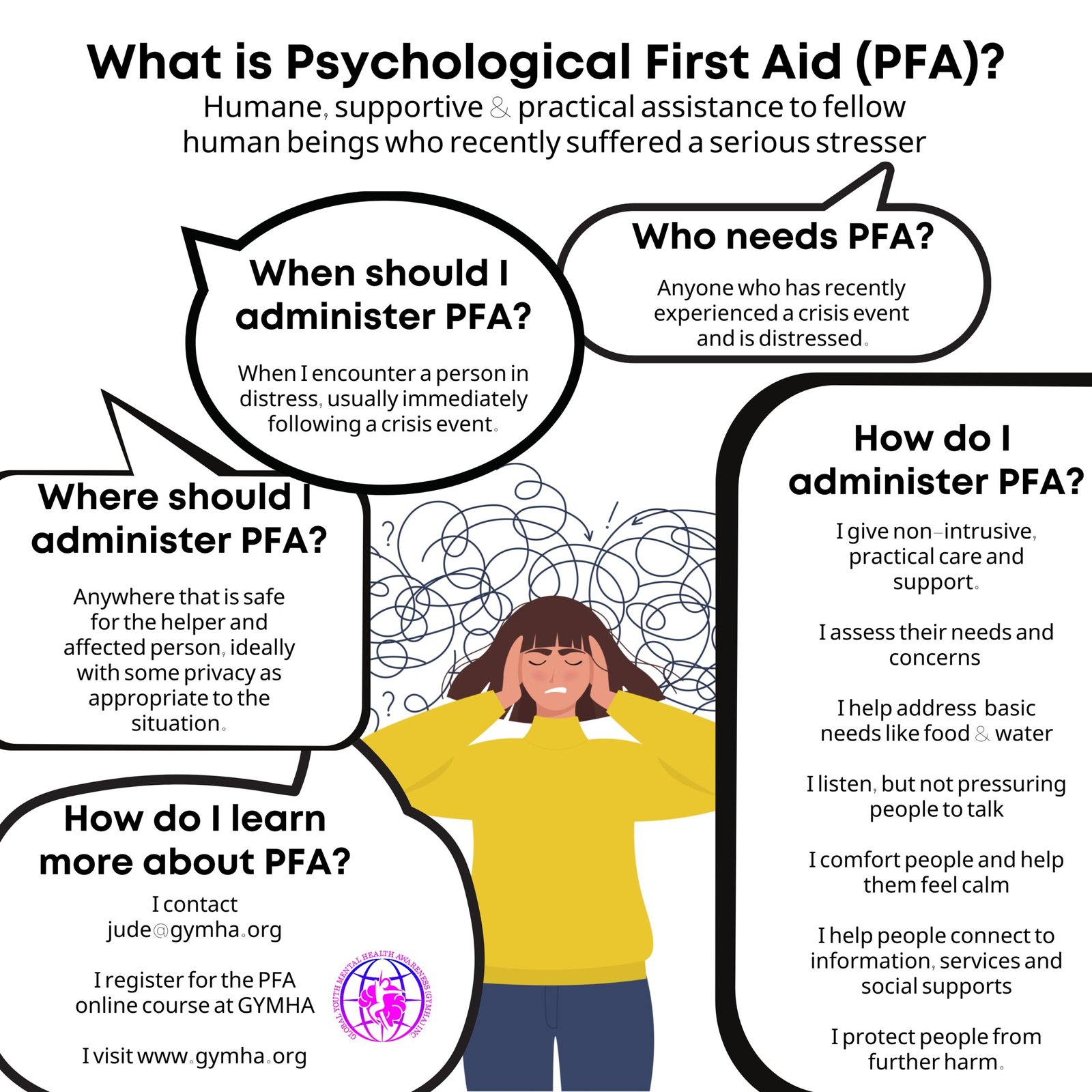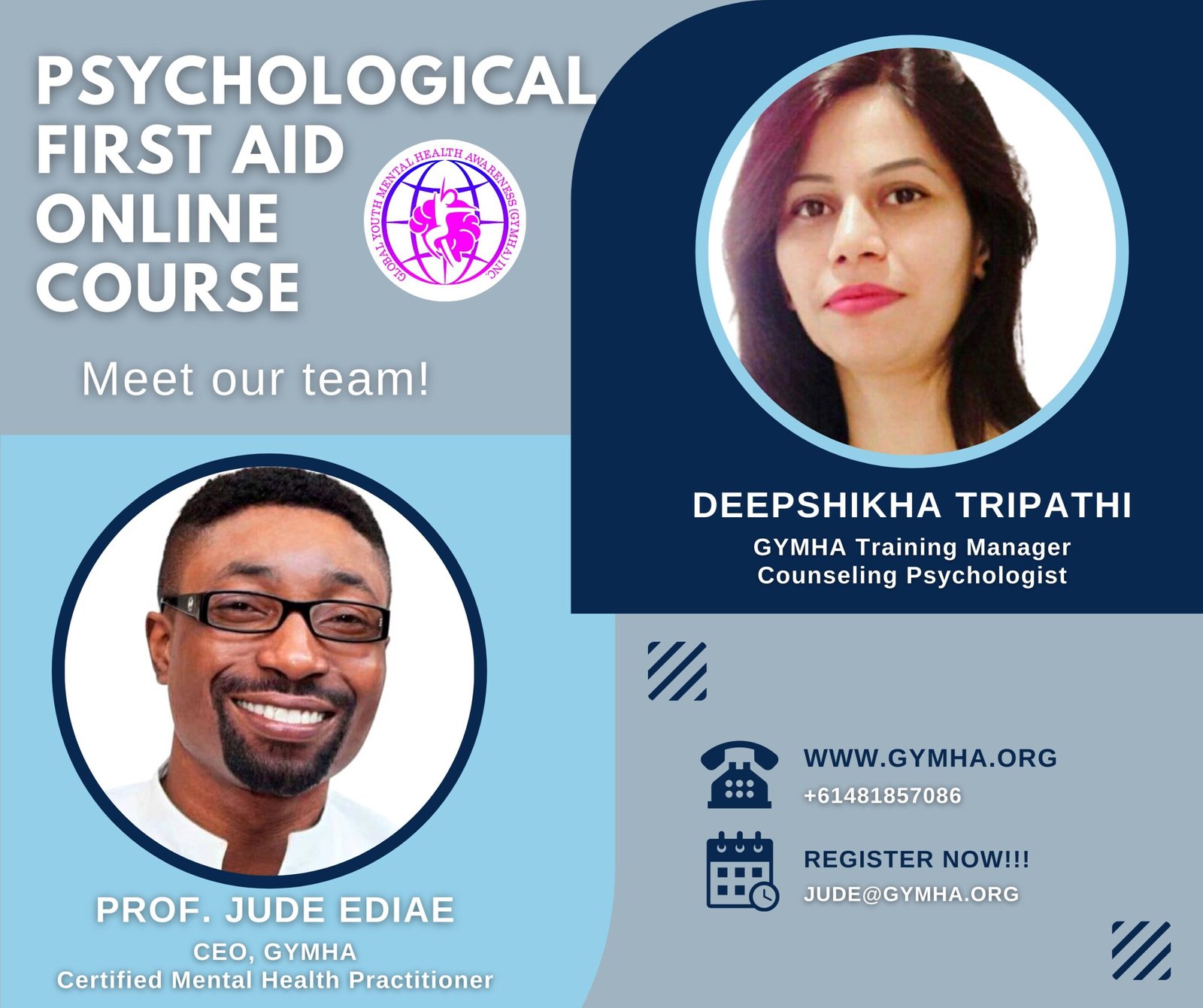 When we treat someone in conventional first aid, we typically clean and bandage a cut or apply ice to a strained ankle. But what if the person was experiencing psychological pain? Psychological First Aid (PFA) is a way of helping people restore a sense of balance and there are multiple ways to do it effectively.
When we treat someone in conventional first aid, we typically clean and bandage a cut or apply ice to a strained ankle. But what if the person was experiencing psychological pain? Psychological First Aid (PFA) is a way of helping people restore a sense of balance and there are multiple ways to do it effectively.
Read more about PFA below and how GYMHA’s online course can help you build these skills. You can enrol in GYMHA’s course directly by following this link.
What is Psychological First Aid (PFA)?
Psychological First Aid (PFA) is used as a leading crisis intervention method to reduce the initial psychological trauma of disasters. It extends beyond psychological trauma of disasters and includes social support.
PFA is promoted by the World Health Organization, Inter Agency Standing Committee, and the SPHERE Project ( IASC, 2007; Sphere project, 2011). These groups are responsible for setting international standards for humanitarian relief and describe PFA as a human supportive response to a fellow human being who is suffering and who may need support.
Who can benefit from PFA as an intervention and under what circumstances should it be used?

Anyone who has recently experienced crisis event and is showing signs of distress can benefit from PFA. It can be used with discretion under circumstances that are safe for both the helper and person being treated, with privacy as appropriate to the situation.
PFA can involve, but is not limited to:
- Assessing a person’s needs and concerns
- Helping people to address basic needs (food, water)
- Listening, but not pressuring people to talk
- Comforting people and helping them to feel calm
- Helping people connect to information, services and social supports
- Protecting people from further harm
Research shows that people do better long term if they:
- Feel safe, connected to others, calm and hopeful
- Have access to social, emotional and physical support
- Regain a sense of control by being able to help others
How do I sign up to the online PFA course?
This online course is currently priced at $10 and runs for about 1-2 hours – read more about the team below or ask them a question using the enquiries box below. Enrol today by following this link
What are the requirements for undertaking GYMHA’s PFA course?
There are no major prerequisites and requirements – all we ask is you maintain an open mind, non-judgemental attitude, learning spirit, willingness to contribute to community and a passion for making a difference.
Meet the team behind the course

Deepshikha Tripathi
Counselling Psychologist, Life Coach, Founder at Prayas, and GYMHA Training Manager
Deepshikha is passionate about spreading awareness about significance of emotional, mental and psychological wellbeing. She loves to infuse happiness and a sense of purpose in lives through compassion and enabling people to live their life to the fullest. Deepshikha is an experienced life coach, international speaker, active humanitarian and law of attraction practitioner. Deepshikha is CEO / Founder at Prayas, Project Director at Poornpeetham, Counsellor at Thrive Global platform, a member of American Psychological Association (APA), and an NLP MASTER Practitioner.
Prof. Jude Ediae
Jude is the Founder and Chief Executive Officer at Global Youth Mental Health Awareness (GYMHA), as well as Jude, is the Founder and Chief Executive Officer at Global Youth Mental Health Awareness (GYMHA), as well as a Certified Mental Health Practitioner, Award-winning Entrepreneur, Leadership Expert, and International Speaker. Jude has more than 27 years’ experience in leadership and over 10 years’ in mental health, hosting and participating in global youth mental health events in Australia, Nigeria, Ghana, Uganda and Zimbabwe. Certified Mental Health Practitioner, Award-winning Entrepreneur, Leadership Expert, and International Speaker. Jude has more than 27 years’ experience in leadership and over 10 years’ in mental health, hosting and participating in global youth mental health events in Australia, Nigeria, Ghana, Uganda and Zimbabwe.
Read more about Jude here.

Dear Toli, Jude and Deepshika,
Congratulations – Great web page to promote a worthy course.
Much Appreciation & Gratitude
Thanks a lot, Tony for your positive feedback and ongoing support. Much appreciated.
Thanks, Tony for your positive feedback and ongoing support. Much appreciated.
Dear Jude,
Congratulations & great work.Wonderful to see Promote a healthy & worthy course on web page.
Kind regards
Nasrin
Many thanks for your positive feedback.
I appreciate it.
Thanks a lot for your kind and encouraging words. We value and appreciate your ongoing support.